Our Mission
WE ENABLE ORGANIZATIONS TO MORE FULLY ENGAGE THEIR NETWORKS OF LEADERS IN STRATEGIC DECISIONS AND ACTIONS TO INCREASE ADAPTATION TO CHANGE AND PERFORMANCE
Why this Mission
Leaders across industries are tasked with developing and implementing effective strategies to guide their organizations into an uncertain future. This work has never been more critical. Today’s organizations must rapidly adapt to the changes brought by global challenges. To meet these challenges, senior leaders — including the CEO and other members of the ‘top team’ — are recognizing that they alone cannot set and implement their organization’s strategy. They must engage leaders and groups across organizational levels in strategic conversations as part of a coordinated strategic leadership system.
Our aim is to help organizations adapt to today’s challenges by diagnosing strategic and network vulnerabilities and improving the effectiveness of their strategic leadership systems. If left unaddressed, these vulnerabilities can undermine strategic decision-making and organizational success by disrupting communication and influence among members of the ‘top team’ and the broader system of strategic leaders and groups in the organization.
The benefits
To your organization
A detailed personalised insight report and debrief about the networks connecting upper and middle-level managers in your or organization
Personalised insights and recommendations to improve strategy development and implementation
No financial costs as study already funded. Because this project is sponsored by the National Science Foundation, companies can participate at this time at no financial cost.
To the research team:
Building our research data. Data from different organisations is collected and then compiled anonymously to allow us to grow our research insights and impact for our students, practitioners and the wider community
An opportunity to strengthen our relationship with you.
Our method
Our research team uses social network analysis of your leadership team to understand how decision making happens within your organization and to reveal how leaders and teams really collaborate and communicate,
This analysis will provide with valuable personalised insights to take actions for increasing your organisational performance and stregthening your business right now.
During our collaboration we will work with you to personalise a short diagnostic tool for your organisation and then provide you with a full report and debrief outlining our insights
Participation is currently free of costs
This research project is funded, in part, by the National Science Foundation (#1853470 #1853404). Through their generous funding, we are currently able to provide qualifying organizations with a detailed report and a 60-90 minute debrief session with project leads at no monetary cost.
Our Experience and Focus
Dr. Dorothy Carter (University of Georgia) and Dr. Kristin Cullen-Lester (University of Mississippi) are leading an expert team to help organizations diagnose these vulnerabilities and strengthen their strategic leadership systems. Our team has worked with over 100 organizations to help improve the functioning of their networks, including their strategic leadership systems. We find that organizations are most likely to be successful when leaders and the teams they lead are committed to a shared strategy and actively collaborating to achieve that strategy. However, the way work gets done rarely follows the ‘formal’ organizational structure. We use social network analysis to reveal how leaders and teams really collaborate, communicate, and make decisions that impact organizational performance.
Importantly, our work has revealed a variety of critical network vulnerabilities that undermine strategic performance if left unchecked. These vulnerabilities include:
Limited consensus on the future direction and priorities of the organization.
Over-reliance on key individuals for strategic conversations, resulting in communication bottlenecks.
Insufficient upward influence flowing from lower to higher level managers.
Undue influence exerted by certain groups, while other groups are excluded from strategic conversations with the ‘top team’.
Priority misalignment that results in top groups working at cross-purposes rather than for the good of the organization as a whole.
Lack of trust and perceived competence between and within groups that lead different parts of the organization.
We help companies diagnose these types of vulnerabilities and take steps to develop and deliver on more effective strategies to achieve their organizational mission and strategic goals.
Examples of Insights Provided to Participating Organizations
From large for-profits and start-ups to smaller foundations and nonprofits, we are partnering with organizations across a wide variety of industries. Whether in education or energy, our partner organizations have gained critical, tailored insights that help inform their strategic next steps.
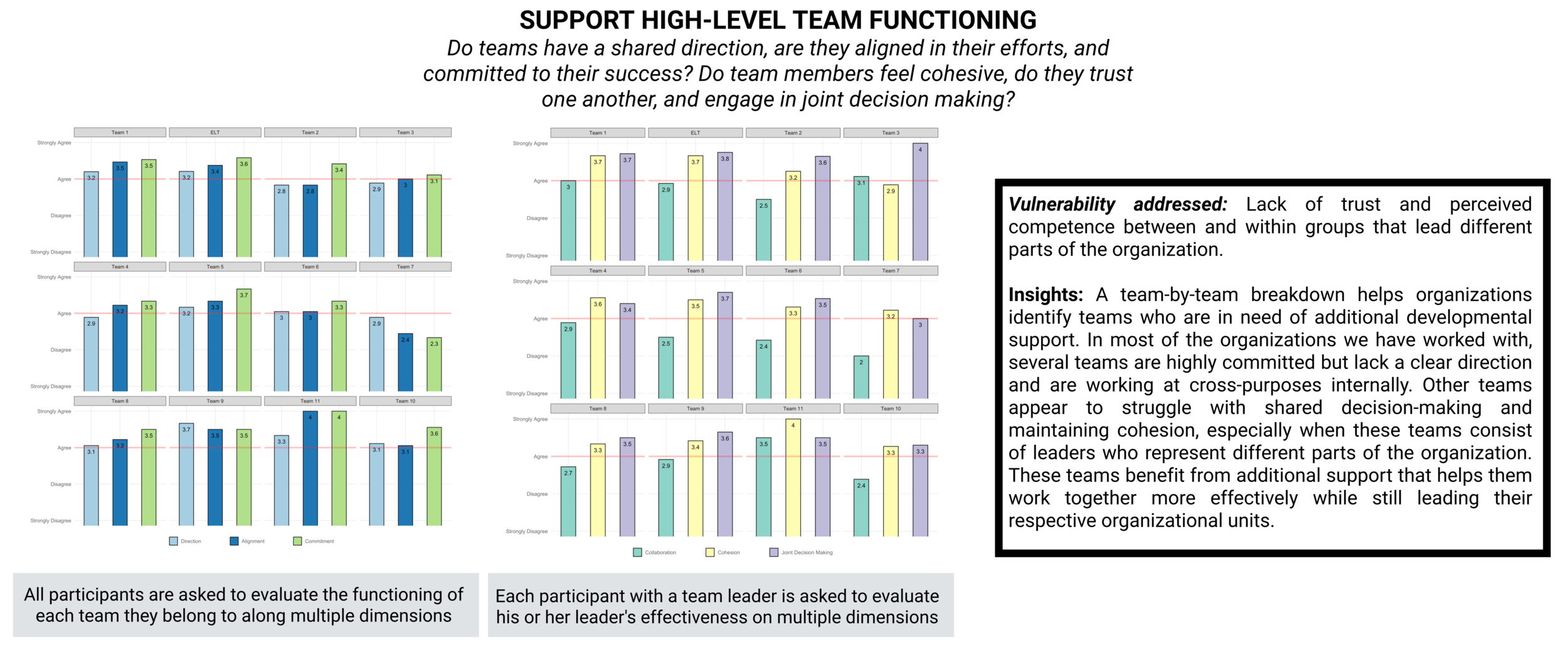
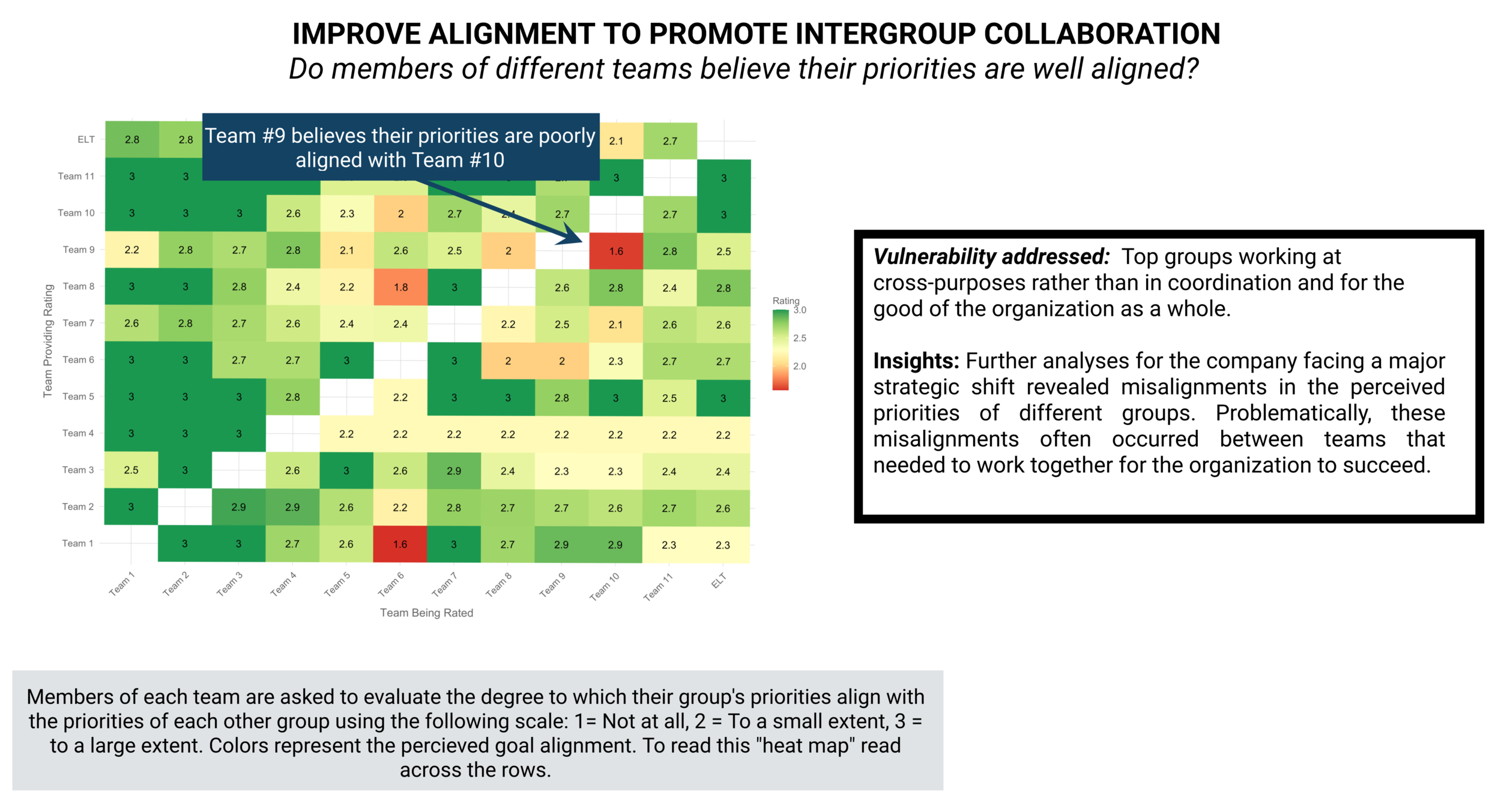
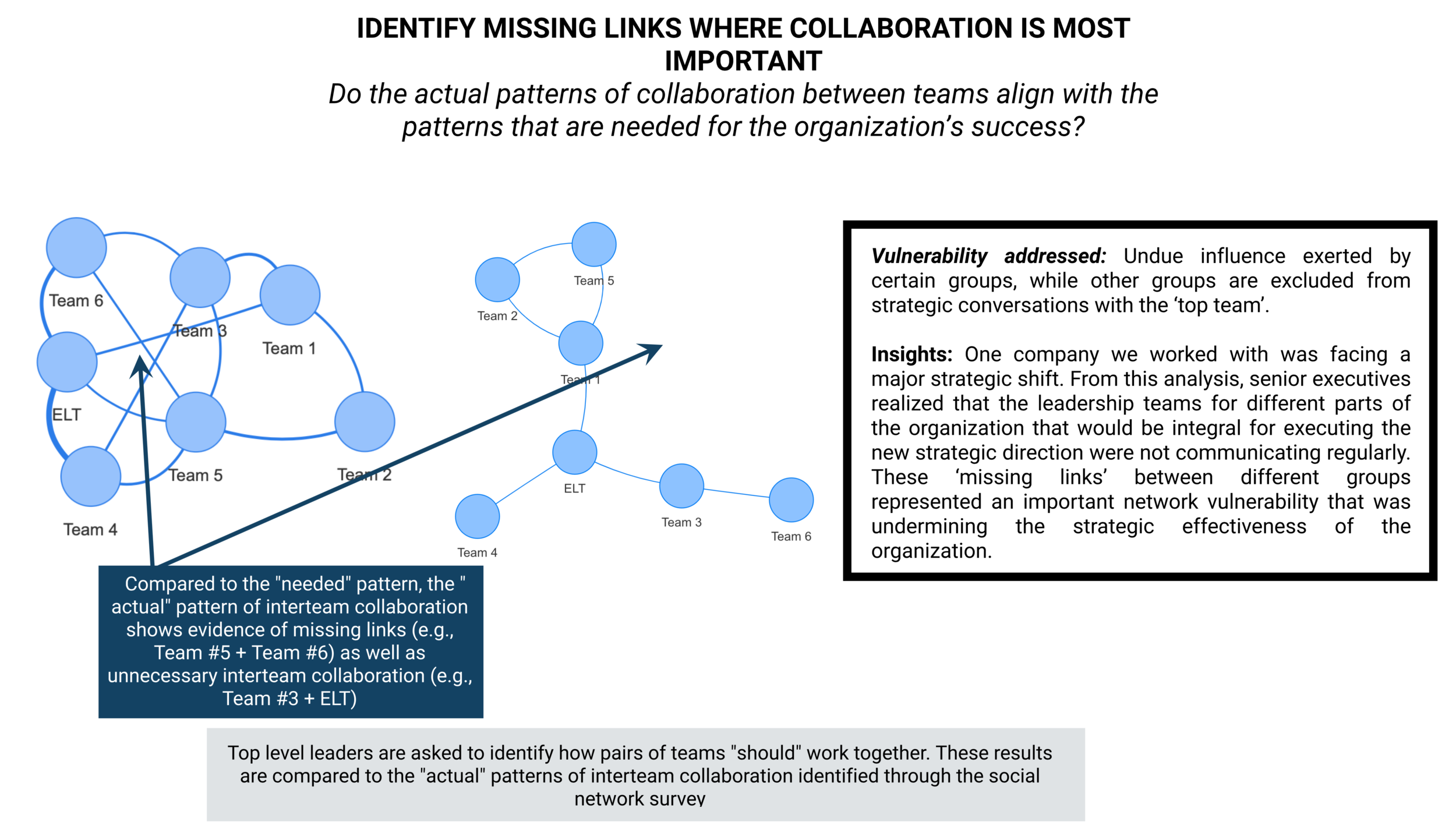
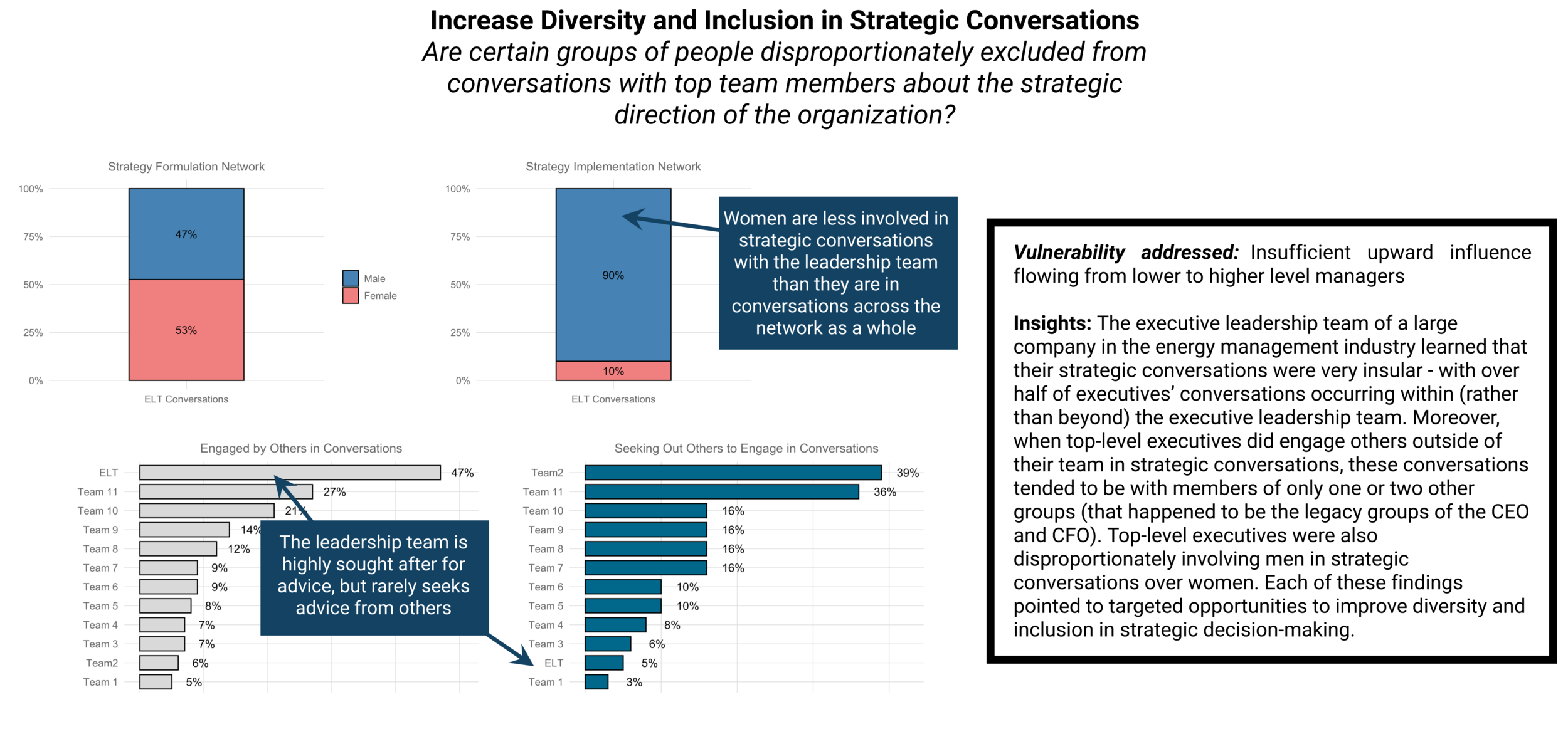
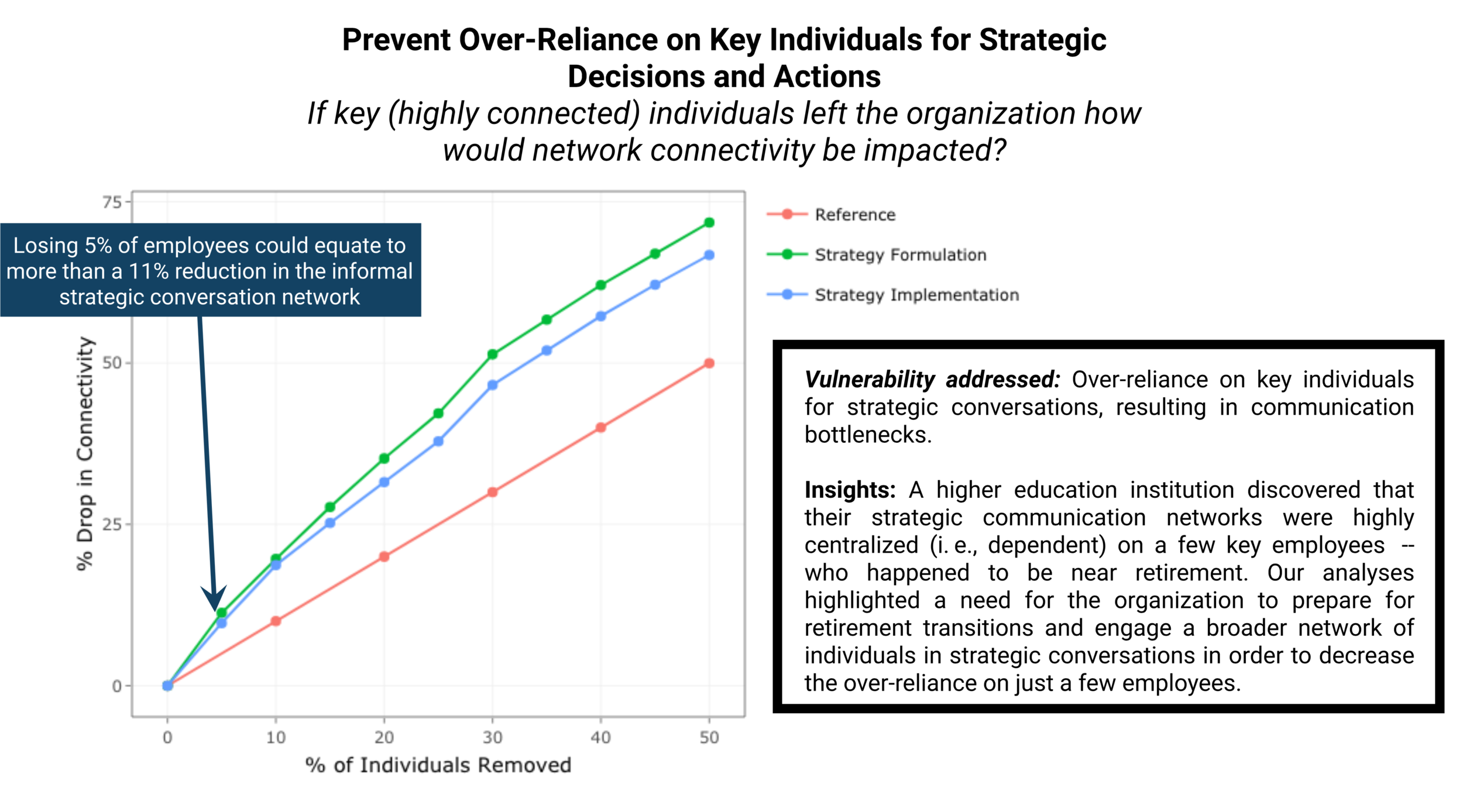
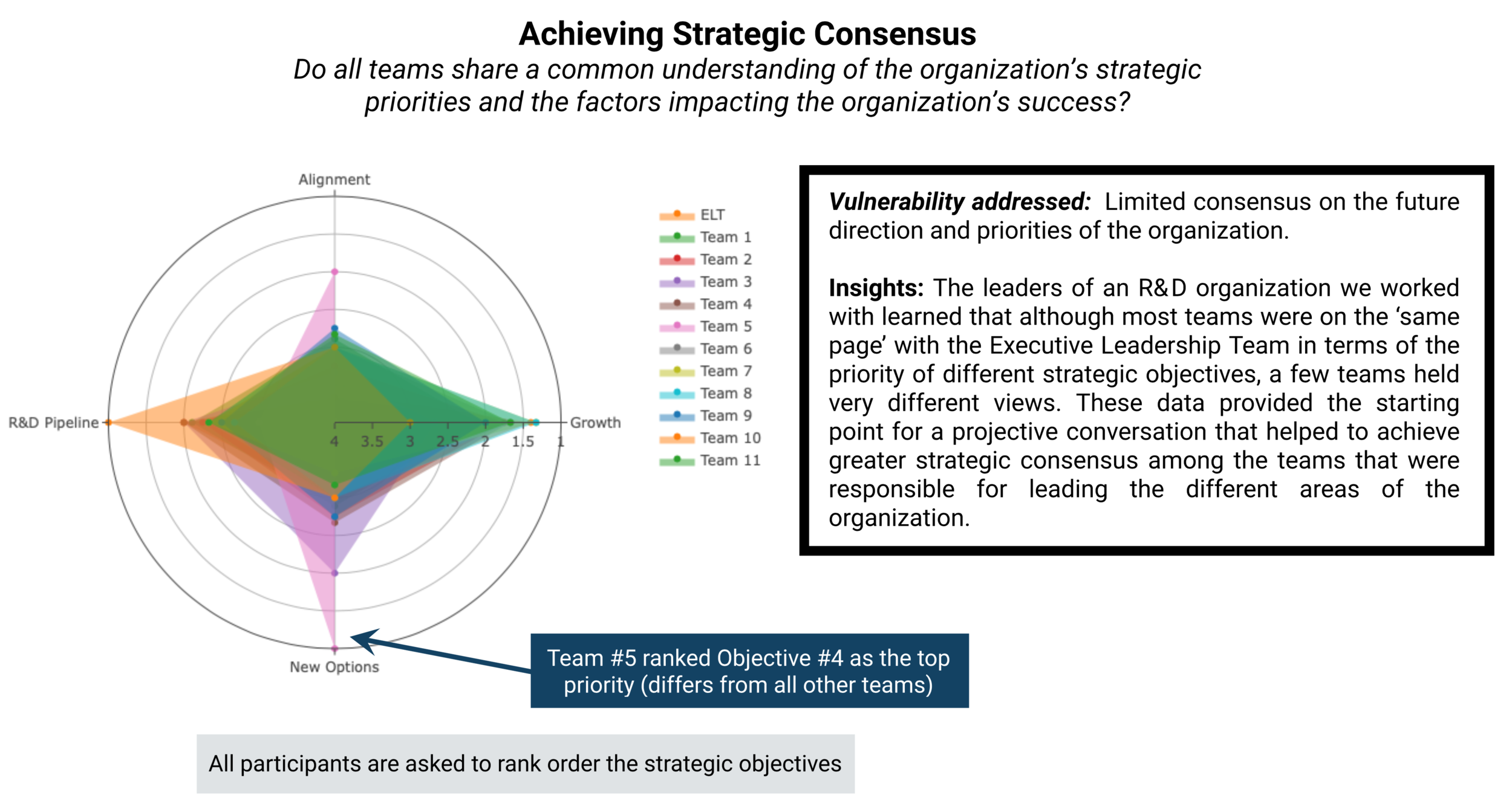
Adapting to exogenous shocks (e.g., COVID-19, natural and man-made disasters) and major technological, regulatory, and customer preference trends (e.g., a move toward low carbon and renewable energy sources) is not a new challenge for organizations. Though the speed and uncertainty makes it perhaps more important than ever before!
We recognize that leaders and organizations are under more pressure more than ever. Now, it is critical to provide leaders with information to make the best strategic decisions for their organizations. To give leaders the insights they need for their most pressing questions, we are offering an assessment of how current situation is impacting communication, collaboration, and ability to achieve the organization’s strategic objectives. This additional insight is provided at no monetary cost, and is tailored to qualifying organizations’ specific needs.
FUNDING FOR THIS RESEARCH IS PROVIDED, IN PART, BY THE NATIONAL SCIENCE FOUNDATION (#1853470 #1853404) AND A BEHAVIORAL RESEARCH ASSISTANCE GRANT FROM THE C. T. BAUER COLLEGE OF BUSINESS, UNIVERSITY OF HOUSTON.

